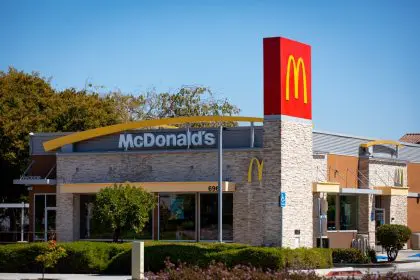In today’s health-conscious world, juice cleanses have gained significant popularity as a quick fix for detoxification and weight loss. Health enthusiasts are often drawn to the idea of flushing out toxins and resetting their system in just a few days. However, medical professionals, including Dr. Robynne Chutkan, an integrative gastroenterologist, caution that juice cleanses don’t live up to their promises. While the allure of a quick dietary reset may seem tempting, the reality is that these programs often fail to deliver lasting health benefits.
Scientific perspective
When it comes to detoxification, the body already has built-in mechanisms. The liver and kidneys play vital roles in processing toxins and maintaining internal balance, working around the clock to cleanse the body. Research shows that these organs perform detoxification far more effectively than any juice cleanse. In fact, consuming only juice for an extended period can strain these natural systems. The body may miss out on essential nutrients, further complicating the detox process.
A study on detox diets highlighted that removing solid foods for just a few days could be counterproductive. Instead of promoting wellness, the body might struggle to adjust to the sudden caloric drop and lack of fiber, which could hinder digestion and energy levels. Juicing, which often removes fiber and essential fats, might also interfere with normal metabolic processes, ultimately doing more harm than good.
Nutritional impact
Juice cleanses are typically low-calorie, with most programs providing only 900 to 1,000 calories per day. This dramatic reduction in caloric intake can lead to immediate feelings of hunger and irritability. However, the most concerning aspect is the elimination of vital nutrients, including protein and fiber, which are crucial for maintaining muscle mass and supporting digestion.
Without sufficient protein, the body is forced to break down muscle tissue for energy, leading to muscle loss. Additionally, the lack of fiber can result in digestive problems like constipation, bloating, and discomfort. Mental health can also be affected by nutrient deficiencies, with individuals experiencing mood fluctuations, lack of focus, or feelings of fatigue. This nutrient depletion can outweigh any temporary benefits one might feel during the first few days of the cleanse.
Daily progression
The experience of a three-day juice cleanse often follows a predictable pattern. On the first day, many participants report heightened hunger and low energy levels as the body adapts to the absence of solid foods. By day two, these feelings might subside, with some individuals experiencing a sense of lightness or energy, possibly from the increased intake of vitamins and minerals from the juices. However, these effects are short-lived, and by the third day, cravings for solid food tend to intensify. At this point, many people experience digestive disruptions like bloating and nausea, which can be signs of a poorly balanced diet.
Physical responses to juice cleanses are often linked to the dramatic changes in caloric intake and food groups. These fluctuations are not a sign of detoxification but rather a reaction to the body’s struggle to adjust to a restrictive and imbalanced diet. Symptoms such as headaches, dizziness, and fatigue are common and indicate that the cleanse is placing undue stress on the body.
Healthier alternatives
Instead of subjecting the body to the potential harms of a juice cleanse, nutrition experts recommend incorporating whole fruits and vegetables into a daily diet through blending. Unlike juicing, blending preserves the fiber content of fruits and vegetables, providing sustained energy and better digestive health. Fiber plays a crucial role in digestion and helps maintain stable blood sugar levels, preventing the spikes and crashes commonly experienced during juice cleanses.
Incorporating protein into smoothies is another effective way to maintain a balanced diet. By adding ingredients such as nuts, seeds, or plant-based protein powders, individuals can create nutrient-dense meals that keep them fuller for longer, preventing the hunger and cravings associated with juice cleanses. These nutrient-rich alternatives offer sustained benefits without the drawbacks of restrictive detox diets.
Long-term considerations
Ultimately, sustainable health improvements come from balanced, long-term dietary habits rather than quick-fix detox programs. Whole foods—such as lean proteins, whole grains, healthy fats, and a variety of fruits and vegetables—are far more effective for maintaining energy levels, supporting metabolic processes, and promoting overall wellness. A focus on hydration and gradual lifestyle changes ensures that the body is receiving the nutrients it needs to function optimally.
While juice cleanses may offer short-term results in terms of weight loss or bloating reduction, the long-term impact on health is less clear. Experts agree that the best approach to health involves a well-rounded, nutrient-dense diet, exercise, and mindfulness. Instead of seeking immediate solutions through trendy cleanses, individuals should focus on building sustainable, healthy habits that will support their goals in the long run.













